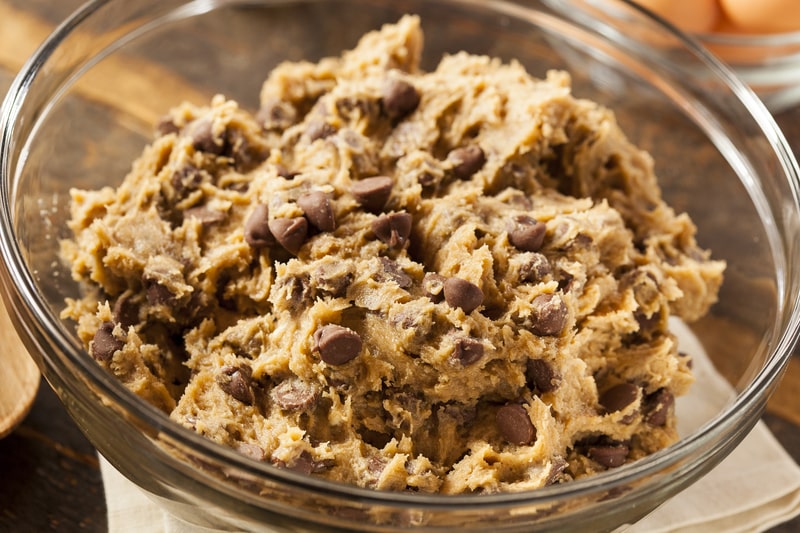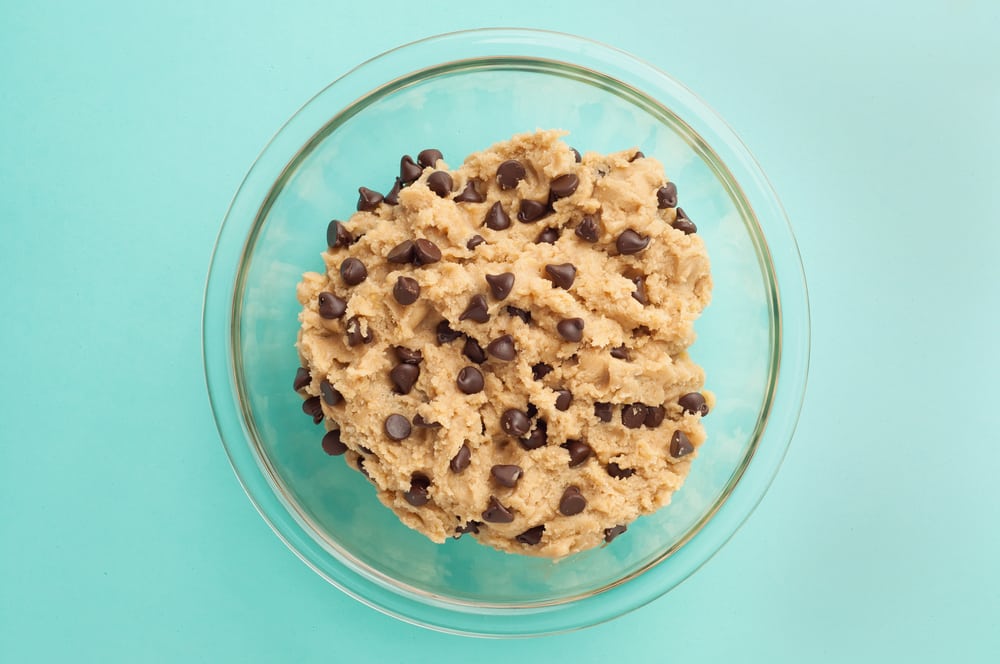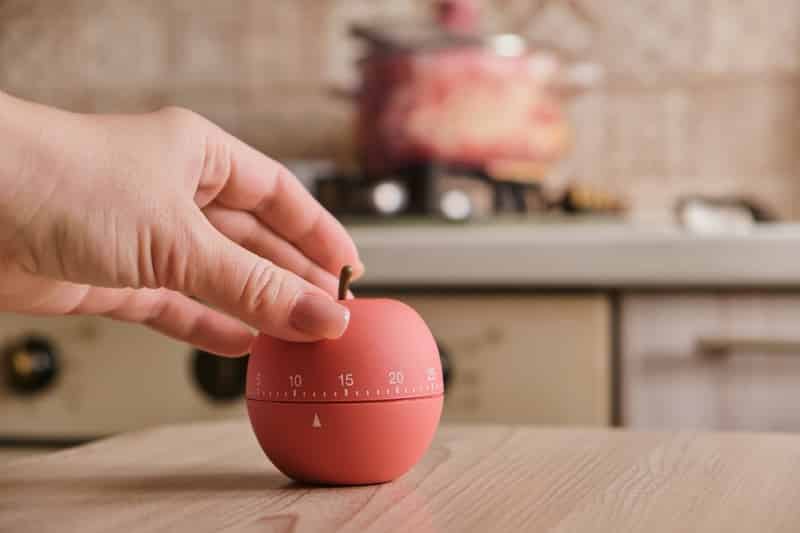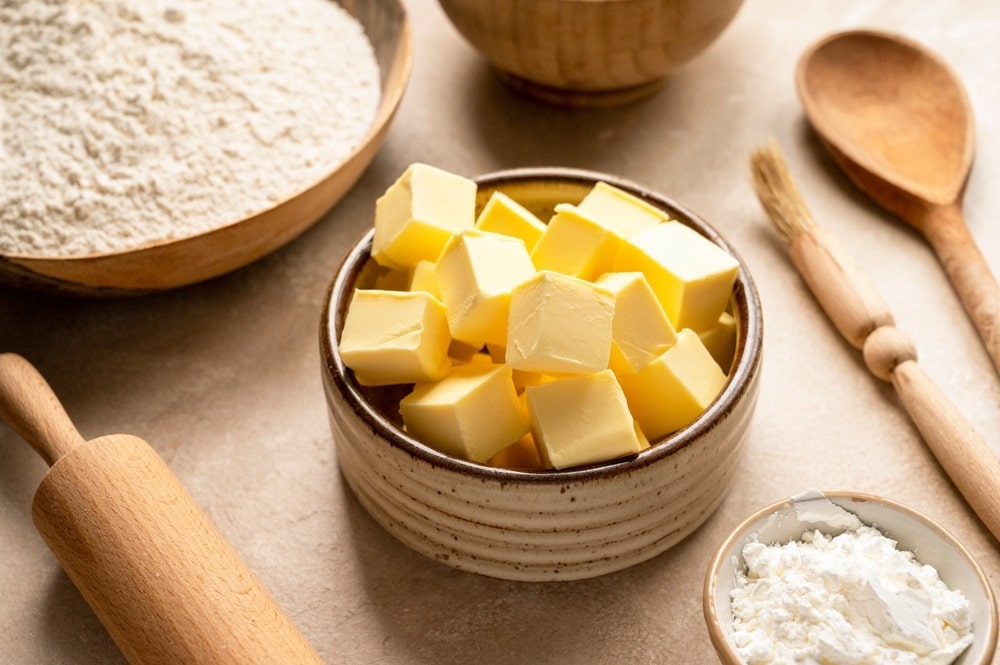
Cookies make the perfect snacks when you want to enjoy some downtime and munch on something while watching your favorite movie.
Contrary to usual belief, cookies are extremely easy to make, but beginners often end up adding too many ingredients to the cookie dough. It’s really important to find a good recipe and stick to the exact quantities.
Having said that, if you have already added too much butter while making some cookie dough, this article will provide you with all the essential solutions!
How to Fix Cookie Dough With too Much Butter
Butter is one of the most important ingredients for cookies because it keeps them moist, soft, and chewy. The amount of butter you add directly influences the final texture of the cookies.
Adding too little will give you dry, hard cookies which lack flavor and crumbliness but too much butter in the cookie dough will result in a loss of shape and the cookies will be too oily.
Keep reading because we are going to give you some solutions!
1. Add More Other Ingredients
When you have added too much butter to the dough, you can simply adjust and add other cookie dough ingredients in proportion to make sure you can counteract excess butter.
These would include flour, sugar, eggs, and such things. This is because it is nearly impossible to take out butter from the dough once you have mixed everything together.
It is needless to say that adding more ingredients will result in a bigger batch of cookies, but you can always gift some to your friends or neighbors.
Alternatively, pack them into a sturdy freezer container and freeze them for later use. Frozen cookies can be eaten directly out of the freezer.
You need to follow the ingredient proportions according to how much butter you have added to the cookie dough. For instance, if you have added 50% more butter, you should double up other ingredients as well to make the cookie dough.
As a result, the cookie dough will achieve the right texture, and you will be able to bake your cookies without worrying about them flopping and being wasted.
2. Cool Down the Cookie Dough
The second solution is to cool down the cookie dough to make it firmer and allow you to work with it. Just wrap the dough in clingfilm and put it dough into the refrigerator. Chill it for about two hours.
This will harden up the butter, making it easier for you to cut the cookies or roll them into shapes. While doing so, sprinkle the work surface with extra flour or cornflour.
This will not only prevent the dough from sticking but will also become incorporated into the dough, reducing the proportion of butter and absorbing the oiliness.
In addition to this, put the cookie sheets into the fridge to chill them before putting the cookies onto them. That way, when they bake they won’t spread out too much and lose their shape.
However, if they do spread out a lot, go with the flow (!), pretend they’re supposed to be that size and call them American cookies. Nobody will be any the wiser!
3. Increase the Baking Time
The third solution that you can try is to increase the baking time for the cookies by about five minutes, being careful not to burn them. It’s a good idea to reduce the oven temperature slightly too.
Keep in mind that baking overly buttery cookie dough will result in a thin, flat shape and chewier texture. The butter will brown, and the cookies will be extremely crispy and delicious.
When you remove them from the tray, put the cookies onto paper towels to absorb any oiliness.
What Happens When You Add too Much Butter to Cookie Dough?
Now that we have outlined the methods of counteracting the cookie dough with excessive butter, you need to understand what actually happens when you make this mistake.
There are different outcomes of using extra butter, namely:
- The cookies will spread out more because the butter will result in a softer dough, which has a higher chance of spreading out. Be sure to position the raw cookies on the tray in such a way that there is space for them to spread.
- The cookies will be extremely crispy on the exterior, but the interior may be uncooked. However, rolling the dough thinner and cooking it for slightly longer will prevent the chances of uneven baking.
- The cookies can also become chewy, particularly if you have added gluten-containing flour to the cookie dough. This is because butter increases the moisture content of the cookie dough, which mixes with gluten to result in a chewy texture.
- Using too much butter will result in greasy cookies, which reduces their shelf life. We don’t think your family will complain if you tell them to finish the cookies quickly!
The Bottom Line
Baking cookies takes skill and precise measurement if you want good results. You need to be extremely particular about how much butter you add to the dough–be sure to weigh or measure it carefully.
In addition to this, you must refrigerate the cookie dough for a night before you bake the cookies. If your cookies cannot be salvaged, bake them anyway and use the crumbs to make a tart base or blend them into vanilla ice cream. Yummy!


